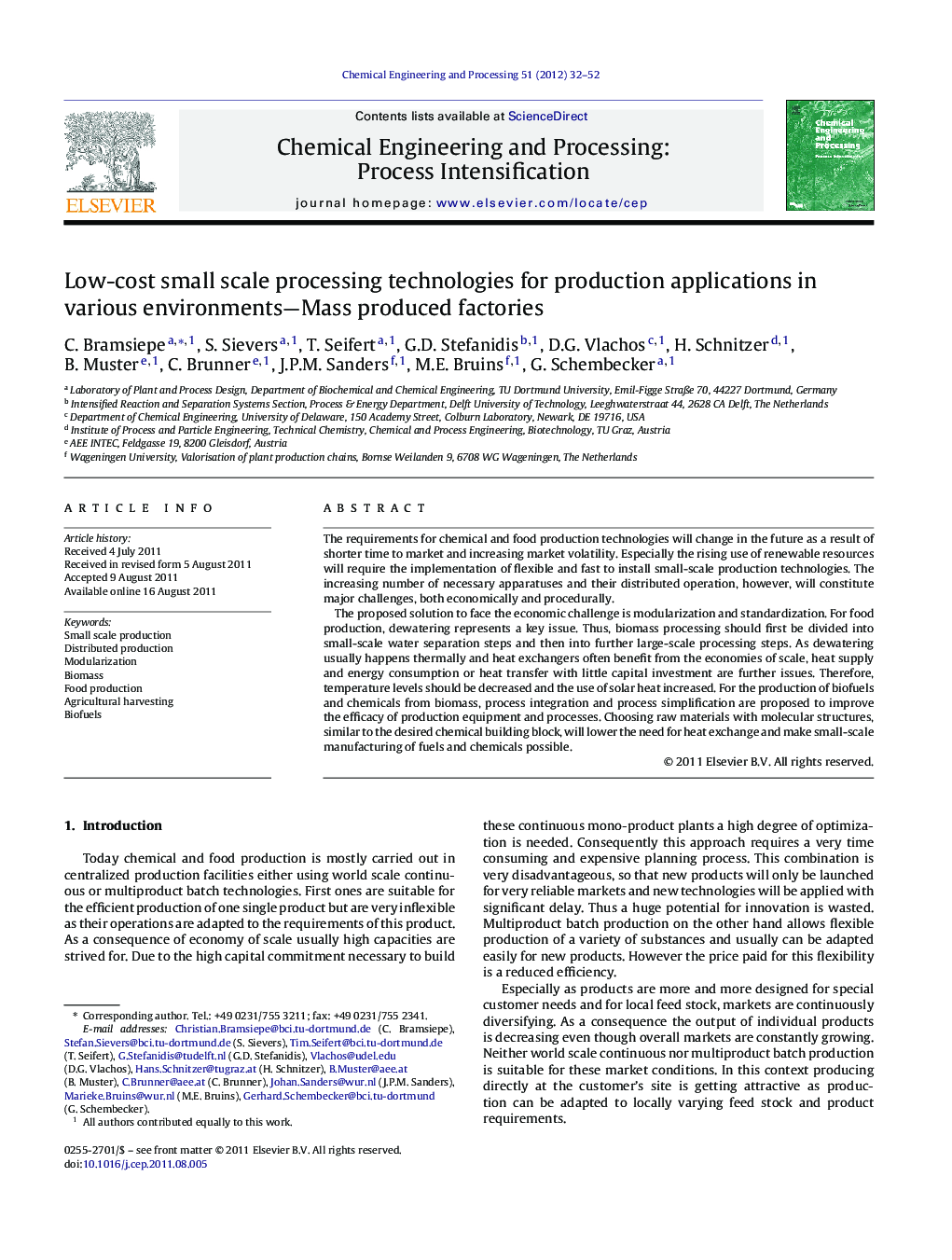| Article ID | Journal | Published Year | Pages | File Type |
|---|---|---|---|---|
| 687230 | Chemical Engineering and Processing: Process Intensification | 2012 | 21 Pages |
The requirements for chemical and food production technologies will change in the future as a result of shorter time to market and increasing market volatility. Especially the rising use of renewable resources will require the implementation of flexible and fast to install small-scale production technologies. The increasing number of necessary apparatuses and their distributed operation, however, will constitute major challenges, both economically and procedurally.The proposed solution to face the economic challenge is modularization and standardization. For food production, dewatering represents a key issue. Thus, biomass processing should first be divided into small-scale water separation steps and then into further large-scale processing steps. As dewatering usually happens thermally and heat exchangers often benefit from the economies of scale, heat supply and energy consumption or heat transfer with little capital investment are further issues. Therefore, temperature levels should be decreased and the use of solar heat increased. For the production of biofuels and chemicals from biomass, process integration and process simplification are proposed to improve the efficacy of production equipment and processes. Choosing raw materials with molecular structures, similar to the desired chemical building block, will lower the need for heat exchange and make small-scale manufacturing of fuels and chemicals possible.
► Modularization and standardization to face economy of scale in distributed production. ► In food production reduce temperature levels to profit from solar energy. ► Water separation and recycle near the field and further processing in large scale. ► Process integration and process simplification to improve efficacy.
